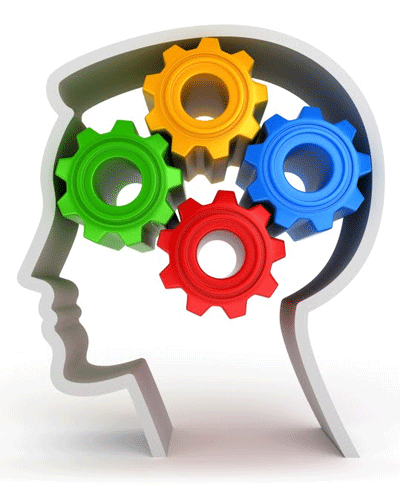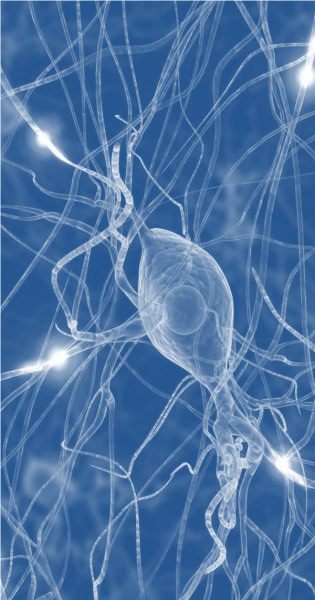 I used to think that our brains were like computers. After all, they process lots of input, use logic to make executive decisions, store and retrieve memories, and produce output. Yet after reading Welcome to Your Brain and watching Dr. Sam Wang’s 36-part DVD entitled Neuroscience of Everyday Life, I have a whole new perspective.
I used to think that our brains were like computers. After all, they process lots of input, use logic to make executive decisions, store and retrieve memories, and produce output. Yet after reading Welcome to Your Brain and watching Dr. Sam Wang’s 36-part DVD entitled Neuroscience of Everyday Life, I have a whole new perspective.
Our brains are not designed for pinpoint accuracy, like a computer. They’re in the business of keeping us alive. To that end, Dr. Wang tells us that “at any given moment, your brain is lying to you.” Here’s how…
The brain takes in huge amounts of information through its sensory processors – eyes, ears, nose, mouth, and skin. As it sifts through the input, it uses a lifetime of experience and its contextually-based expectations to interpret the raw data and then decide what will be processed and retained and what will be discarded. Speed takes precedence over accuracy.
Forty percent of our brain is sensitive to visual stimulation. A large number of brain regions can activate in response to visual signals without entering that input into consciousness. Conscious awareness may function like a spotlight that focuses on specific stimuli and ignores others. And by the time we’re cognizant of visual images, our brains have already made assumptions about what we’re looking at.
The brain’s mechanism for storing and retrieving memories also falls into the realm of not-at-all-like-a-computer. Memories get stored in shorthand based on what the brain considers important. There’s also good evidence that we erase and re-write our memories every time we recall them. And we invent details to fill in the gaps and create a more coherent story. Researchers have demonstrated this phenomenon in laboratory experiments. For example, they can show their subjects a list of words that share a consistent meaning – e.g., ice cream, honey, lollipop, sugar, candy, chocolate. When asked later if the word sweet was on the list, most folks say yes with confidence. They make a reasonable inference that the word made the list even though it did not.
The hippocampus serves as the initial repository for our memories. In the process of rewriting as we re-experience them, memories can transition from the hippocampus to the neocortex. As this transfer occurs, some memories get separated from the context in which they occurred and get woven into the fabric of our general knowledge. For example, we’ll remember that Salem is the capital of Oregon, but we won’t recall when, where, or how we learned that fact. Dreams likely play an important role in memory consolidation.
Armed with this information, I’m more likely to adopt a generous response when others recount memories that are inconsistent with my recollection. I’ll also be wary of declaring that my historical narratives are factually true.
 Our brains also play close attention to activity on all of its synaptic connections. It strengthens synapses that see frequent use (“cells that fire together, wire together”). This mechanism enables us to execute thousands of sequences in everyday life without having to think much about them (e.g., tying our shoe laces). It also weakens or removes synapses that remain dormant while others are actively used (“out of synch, lose you link”). This phenomenon is referred to as neural plasticity. It has several important practical applications:
Our brains also play close attention to activity on all of its synaptic connections. It strengthens synapses that see frequent use (“cells that fire together, wire together”). This mechanism enables us to execute thousands of sequences in everyday life without having to think much about them (e.g., tying our shoe laces). It also weakens or removes synapses that remain dormant while others are actively used (“out of synch, lose you link”). This phenomenon is referred to as neural plasticity. It has several important practical applications:
- If there’s a goal that you’d like to accomplish, visualize the process of attaining it in as much detail as possible and as often as possible. When your brain is wired for success, you’re far less likely to be stymied by roadblocks along the way.
- When teaching a class, provide some initial exposure to key facts or conclusions. By preparing the brain for what’s ahead, it’s more likely to pay attention to specific pieces of information. For example, an early quiz sets the brain up for future learning.
- If you need to study for an exam, break your preparation into several relatively small sessions (45-90 minutes). Your brain will retain information longer if it has the chance to process it between study sessions.
- If something or someone makes you unhappy, find a way to distract yourself when the memory emerges. If you dwell on it, you simply reinforce the pain and increase the likelihood that it will keep popping up. Turn your attention to something pleasant.
- Reappraisal is a powerful tool for transforming unhappy memories. Find a way to change the meaning of the event into something positive and forwarding. Folks skilled in reappraisal tend to be emotionally stable and resilient.
Finally, frequent small positive events have a greater cumulative effect on happiness than large positive events. For example, when people win the lottery, they typically go through an initial period of euphoria after which they revert to their former set points. To elevate your set point, eliminate daily irritants, set realistic goals and achieve them, use your character strengths, and cultivate a daily practice of gratitude.